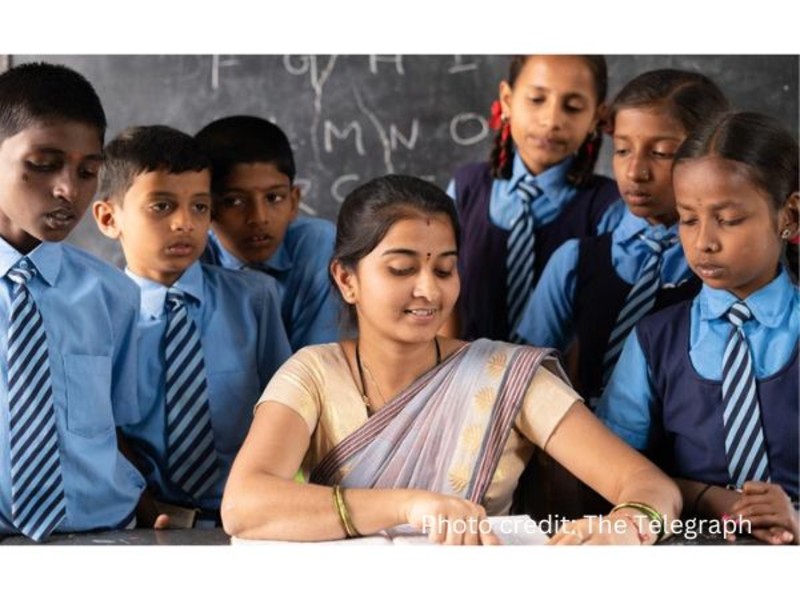– Baishali Mukherjee
The primary-secondary education sector of West Bengal has been undergoing severe disruptions with teacher recruitment scams, school closures, high dropout rates and the recently exposed tablet scam.
In an effort to strengthen the sector, the state government has introduced several initiatives recently, including introducing changes in school scholarship schemes in order to avoid irregularities, and training teachers for the newly introduced higher secondary curricula.
Earlier this month, the education department announced that the government has decided to take a two-pronged approach to strengthen the state’s school education sector with the objective of ensuring more inclusivity for children with special needs and a curriculum more aligned to the present times. The state government plans to recruit teachers for children with special needs. The cabinet has already decided to amend the School Service Commission Act. The amended act titled ‘West Bengal School Service Commission (Recruitment of Persons for Appointment to the Post of Special Education Teachers) Rules, 2024’ is coming into effect soon.
Reports suggest that the state government has approved the recruitment drive in a recent cabinet meeting. Recruitment for 2,500 vacant posts is expected at the beginning of next year.
However, according to the School Service Commission (SSC) the recruitment notice cannot be issued until the gazette notification is published after the cabinet’s approval. The faster the gazette notification is issued, the quicker the recruitment process will proceed. Currently, around 1,100 special educators are employed on a contractual basis at the primary level. Amending the law was necessary to regularise these teachers separately. The Supreme Court has also issued directives regarding this.
To become a special educator, a Special B.Ed. or D.El.Ed. degree approved by the Rehabilitation Council of India (RCI) is mandatory. Until now, educators with such special degrees were employed as regular teachers. Currently, there are 391 assistant teachers with Special B.Ed. or D.El.Ed. degrees.
The Supreme Court had earlier ruled in a related case that the state must appoint one special educator for every four schools, which would exceed 20,000 appointments in the state. Eventually, this will need to be adjusted to one special educator per school. According to the rules, one special educator is required for every 10 children with special needs, and for higher classes, one for every 15 children.
The School Education Department has also decided to install solar panels in 1,000 schools across the state. This includes 45 schools in Kolkata and 88 in South 24 Parganas under this project. District inspectors are to submit information about schools eligible for this installation by this week.
The department has also requested a list of schools where infrastructure exists but solar panels have not yet been installed. Additionally, the schools are requested to report their monthly electricity expenses.
Swapan Mandal, General Secretary of the Bengal Teachers and Staff Association, stated, “With rising electricity costs and operational expenses, schools are struggling. The government is not providing composite grant funds. Installing solar panels would help, but care must be taken to ensure no favoritism in school selection. Last year, similar lists were requested, but no one knows what happened to them.”
The education department has set district-wise targets, with North 24 Parganas topping the list with 103 schools selected, followed by South 24 Parganas with 44 schools. East Midnapore has 75 schools, West Midnapore 72, Hooghly 68, and Kolkata 45 schools identified for solar panel installation.
However, schools must meet several conditions, including having a shadow-free roof of 1,000 square feet, no tall buildings or trees to the south, sufficient water facilities for cleaning the panels, and a robust concrete roof with sturdy stairs.
Chandan Maiti, General Secretary of the Headmasters’ Association, commented, “Though the project has been in place for a long time, only 25–30 percent of the work has been completed so far. The government will maintain the solar panels for five years, after which schools will have to bear the heavy maintenance costs. The government must address this issue.”
Also read:
West Bengal launches teacher training for new higher secondary curriculum
